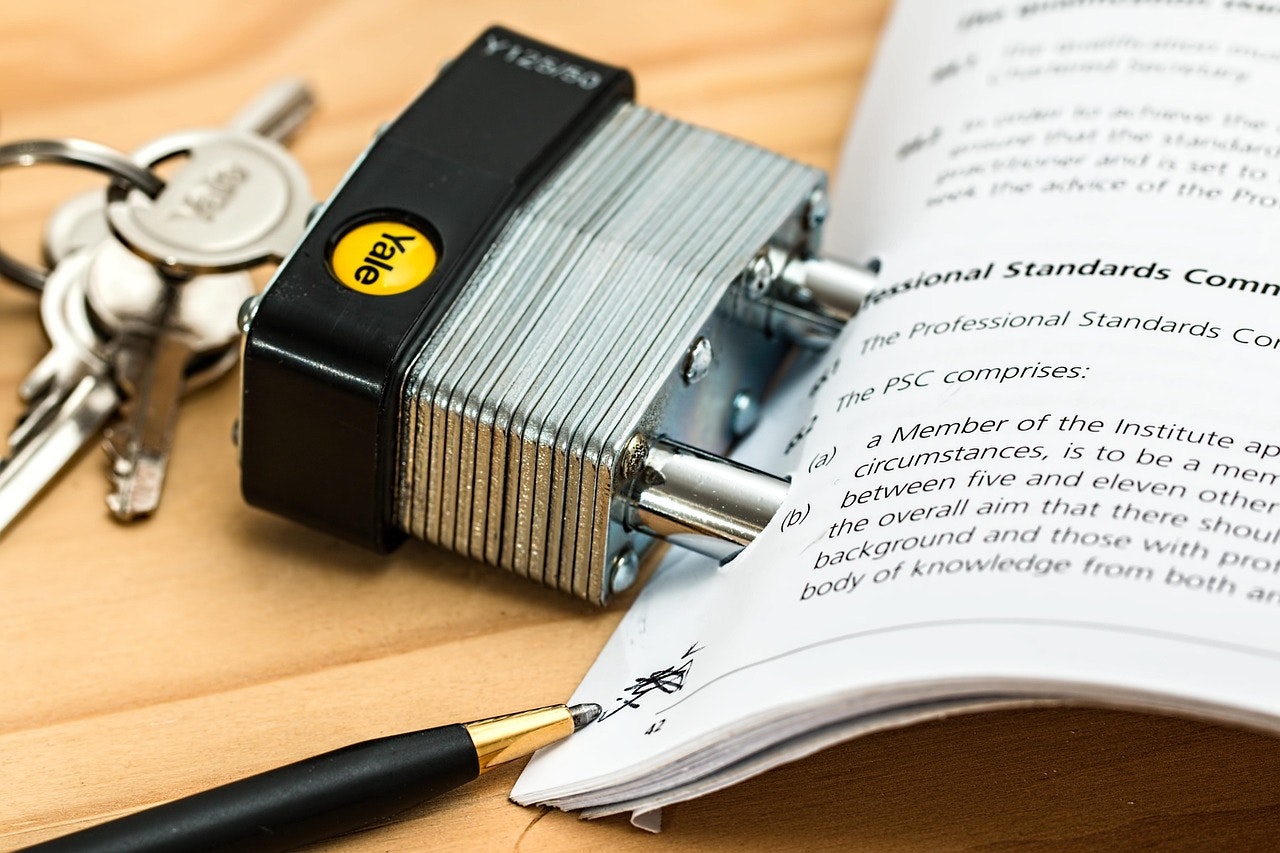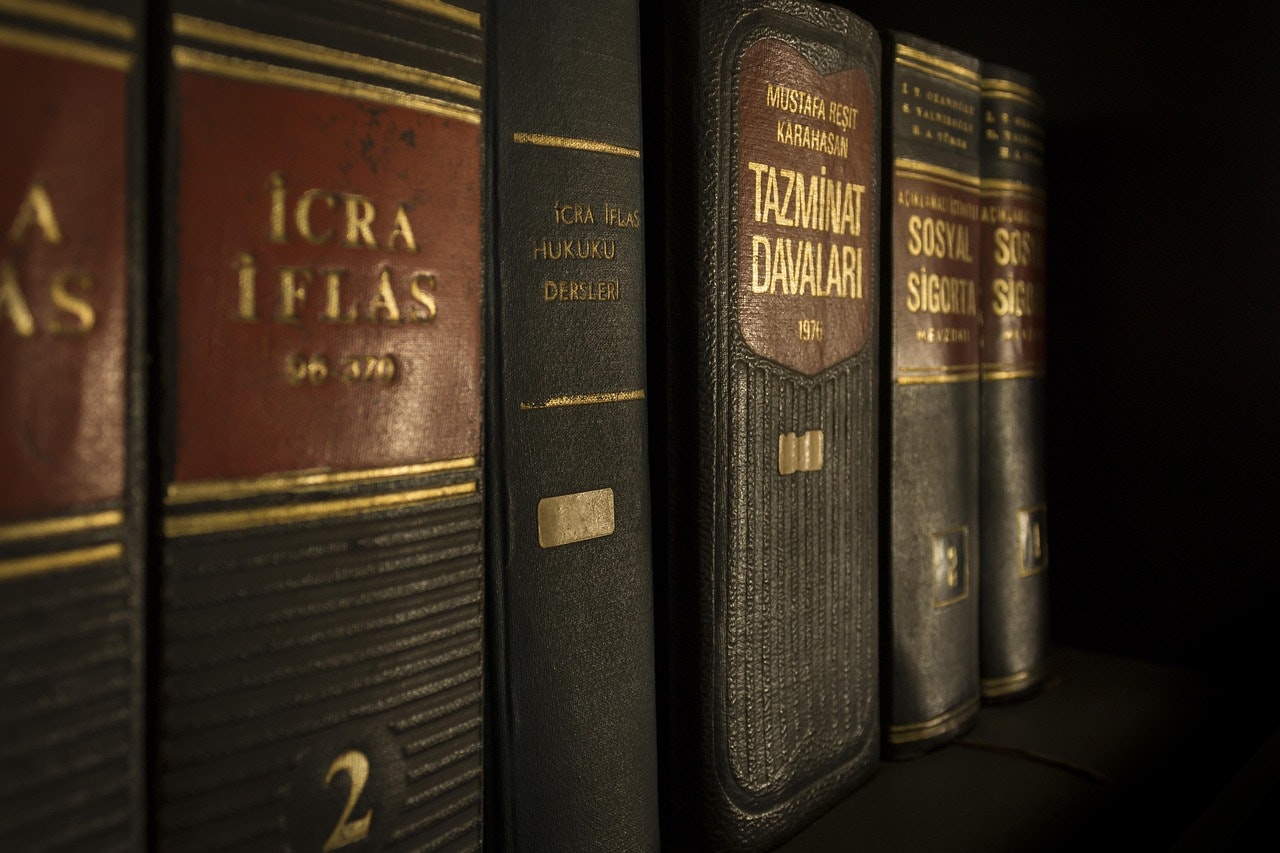Legal Tips for Life & Business
Insights to Help You Plan Smarter
Common Estate Planning Myths — and the Facts You Should Know
IntroductionEstate planning often comes with a fair amount of confusion, especially when it comes to how trusts work, what an estate plan actually covers, and the right way to handle disinheritance...
Read more
Recognizing and Preventing Abuse in Conservatorships and Guardianships
February 1st is Conservatorship and Guardianship Abuse Awareness Day, a moment dedicated to shining a light on the potential dangers that can arise when someone is granted legal authority over...
Read more
4 Common Mistakes to Avoid in Maryland Estate Planning
Planning for the future can be challenging, especially when it involves preparing for a time when you may be incapacitated or no longer alive. However, creating an estate plan is an incredible way...
Read more
What Happens If You Die Without a Will in Maryland?
You've worked hard to build something for the people you love, but without a will, you miss the chance to decide who receives it. Assuming your family will simply "work it out" when the time comes...
Read more
Can You Use Offshore Trusts Estate Planning?
When creating an estate plan, some individuals with high-value estates consider offshore trusts to help manage and protect their wealth. While these trusts can offer certain advantages, they must...
Read more
Protecting Your Medical Practice from Lawsuits Through Estate Planning
Running a medical practice is rewarding, but it also comes with liabilities. Even when you follow all medical standards and carry insurance, one lawsuit or financial dispute could put your assets...
Read more
Can My Adult Child Serve Under My Power of Attorney?
A power of attorney is a vital tool in your estate plan. Many parents think about assigning one of their adult children this role because their child may already understand their daily needs,...
Read more
How Should High-Net-Worth Individuals Choose an Executor?
When you have significant assets, choosing the right executor is a critical part of creating your estate plan. For high-net-worth individuals, this decision is especially important. Large estates...
Read more
Estate Planning When You Have a Child With Special Needs
Planning for the future is an essential part of raising a child with special needs. Parents want to make sure their child will be cared for, even when they are no longer able to help. A good estate...
Read more
Estate Planning for Blended Families With Substantial Assets
When a family includes children from prior marriages, new spouses, and shared children, estate planning becomes more complex. High net worth individuals in Maryland face additional challenges...
Read more
Understanding Dynasty Trusts in Maryland Estate Planning
Families with growing wealth often want a plan that lasts beyond their children and supports future generations with clear rules. With state estate and inheritance taxes, smart choices about titles...
Read more
Why Do You Need a Medical Power of Attorney in Maryland?
A medical power of attorney is a document that allows you to designate someone to make healthcare decisions on your behalf if you become incapacitated. In Maryland, having this document ensures...
Read more
Can I Write My Own Will Without a Lawyer?
Legally, you can write your own will. However, this option comes with risks. State law sets strict standards for what makes a will valid. Even minor errors can cause delays and disputes. You could...
Read more
Do Small Estates Have to Go Through Probate in Maryland?
Probate, the court-supervised legal process that handles the administration of an estate, can be lengthy and costly. For the surviving relatives and heirs, it can take months or even years for...
Read more
Who Can Serve as a Personal Representative in Maryland?
The role of a personal representative is not available to just anyone in Maryland, but the law allows for a range of qualified individuals to serve. Whether you are writing a will or dealing with...
Read more
Addressing Three Common Concerns About Powers of Attorney
Giving someone power of attorney is a serious decision. It allows another person, called your agent or attorney-in-fact, to handle your financial, legal or medical matters. Many people worry about...
Read more
Implementing Charitable Giving in Your High-Net-Worth Estate Plan
Including charitable giving in a high-net-worth estate plan is a priority for many. It allows you to support causes that are important to you while also activating tax benefits for you and your...
Read more
Three Common Questions About Wills and Trusts
Estate planning is not just for those with a heavy asset portfolio. It is a customized process designed to document your wishes and ensure they are fulfilled in the event of your death, just as you...
Read more
What You Should Know About Business Succession Planning
Business succession planning can be a sensitive subject, especially for small and family-owned companies. However, it is an essential part of being a responsible business owner. Without a formal...
Read more
Types of Trusts You Can Include in Your Estate Plan
There is much more to estate planning than just creating a will. Trusts provide legal protection for asset distribution and have many purposes. It is common practice to include trusts in your...
Read more
Resolving Property Disputes Between Beneficiaries in Maryland
Inheriting property can be amazing and challenging at the same time, especially when you are only one of multiple beneficiaries of the same asset. Disputes over inherited property are common in...
Read more
Can I Disinherit Someone in My Will or Trust?
We have all seen someone in a movie threatening to write a relative out of their will, but is that something you can legally do? Estate planning lets you control how your assets will be distributed...
Read more
How Does the Step-Up in Basis Rule Help Heirs?
When you are ready to think about estate planning, it is important to consider how your heirs and beneficiaries might be impacted by taxes. One important concept to know is called the "step-up in...
Read more
What is Medicaid Recovery?
Many people throughout Maryland end up incorporating long-term care costs into their budgets at some point, generally relying on Medicaid benefits to help cover the expenses. However, Medicaid...
Read more
4 Options for Avoiding Probate
Probate is the term used to describe the legal process through which someone’s estate is managed and distributed after they die. Unfortunately, probate can be expensive, stressful, and time...
Read more
How Can I Address Out-Of-State Assets in My Maryland Estate Plan?
Many people tend to have assets like their home, other property, and bank accounts in the state where they live. When it comes time to create an estate plan, this simplifies matters, particularly...
Read more
4 Common Mistakes to Avoid in Estate Planning
Estate planning is an important way to ensure that your wishes will be carried out when you pass away. You can decide who should get your property, raise your children, and manage your finances...
Read more
How do Maryland’s Estate Tax Laws Impact Inheritance?
Estate planning is an important part of preparing for the future, and for how your assets will be passed on to loved ones in particular. Maryland’s estate tax laws could affect how much money heirs...
Read more
Digital Assets To Consider in Your Estate Plan
As technology continues evolving, so do the ways we store and manage important legal, financial, professional, and personal information. Digital assets have become an essential part of our daily...
Read more
3 Ways to Incorporate Charitable Giving into your Estate Plan
Posted on October 21, 2024 in Estate PlanningPlanning for the future can be challenging, especially when it involves preparing for a time when you may be incapacitated or no longer alive. However,...
Read more
Should I Create an "ABLE" Account as Part of My Maryland Estate Plan?
Estate planning offers a way for you to plan for something that can happen in the future that you would probably rather not think about. However, if you have plans, everything can be more...
Read more
What type of Maryland Special Needs Trust Should I Choose?
Estate planning is when you make arrangements now for how your resources and assets can benefit people after your death. While most parents try to leave something behind for their children, parents...
Read more
Can I Plan My Own Funeral?
While death is inevitable, it is also something that people generally prefer not to think about. However, some find that planning for that part of the future can give them an incredible amount of...
Read more
Who Needs Business Succession Planning in Their Estate Plan? | MD
Business succession planning is the process of preparing for the future of a business when the owner or key leaders leave, retire, or pass away. It involves creating a plan to ensure that the...
Read more
Four Tips for High Net Worth Estate Planning
Estate planning ensures that individuals with significant wealth can protect and distribute their assets according to their wishes, while also minimizing tax implications and potential legal...
Read more
Navigating Through Probate
Whether the loss of a loved one is the end of a long struggle with illness or the result of a sudden accident, many families face new challenges getting through the probate process. Especially if...
Read more
Five Questions to Ask When Choosing a Guardian
When you bring your newborn home from the hospital, you plan to spend the next 18 years and beyond providing and caring for your child. But if you aren’t around, you want to make sure that the...
Read more
In A Domestic Partnership? Make Sure You Have A Will.
Say you’ve been with your partner for years. You live together and share certain assets together. Your lives are completely intertwined. Sure, you are not legally married, but you certainly don’t...
Read more
Why It Is Important To Have A Detailed Estate Plan
To some people, the prospect of putting together their estate plan may be akin to medicine they know they need, but view as downright unpalatable. However, a skilled and experienced estate planning...
Read more
How important is business succession planning?
If you own a business, you likely spend a great deal of time thinking about the business and what you need to do to protect it.However, you could be overlooking a critical component of running your...
Read more
Protecting Your E-Legacy
As the digital age increasingly takes over more aspects of our lives, assets that hold tangible and sentimental value are not always something you can hold in your hands. Commonly referred to as...
Read more
Which assets should I include in a prenuptial agreement?
Creating a valid prenuptial agreement before marriage is an effective way to shield certain property and assets from division in the event of a divorce.If you are considering having a prenup in...
Read more
Things to consider before bringing in a business partner
Many business owners find that running a business is not a one-person job. There are countless responsibilities and expectations on an owner’s shoulders, from hiring and managing staff to...
Read more
A line between enforceable and unenforceable prenup terms
Prenuptial agreements are increasingly becoming mainstream. Not only do you see only the very wealthy or high-profile couples doing them, but lots of people who simply have specific assets or...
Read more
That difficult talk about end of life arrangements
While the old adage is "nothing is certain but death and taxes," that doesn’t mean we like talking about either. This can be especially true when discussing end-of-life arrangements with older...
Read more
Legal Counsel is Crucial When Buying Leasing Commercial Property
If you run a business in Maryland, you likely play many roles on any given day. You might be dealing with employment matters in the morning and by the afternoon, you could be making crucial...
Read more
Millennials: Four Reasons Why You Should Have an Estate Plan
Men and women in the younger demographics often assume they don’t need to think about estate planning because they don’t have much to protect. They might still be looking for a career and paying...
Read more
How a special needs trust can protect your child
When it comes to parenting, you know your child better than anyone else. The same is especially true if your child is special needs. You know their routine and the environment that they thrive in....
Read more
Considering 524 Qualified Tuition Plans
Got a kid or grandchild headed to college….sooner or later? December is a great time to set up and contribute to a 529 plan, to take advantage of this year’s annual gift exclusion amount. 529 plans...
Read more
Changes for 529 Education Savings Plans
Previously, 529 plans could be used only to cover costs for college and other post-secondary educational expenses. The updated law changes that, allowing use of 529 savings plans to support...
Read more
How a life insurance trust can help preserve your wealth
Estate planning goes far beyond itemizing assets and listing beneficiaries to receive these assets. Especially for those who plan to leave a good deal of wealth and possessions when they pass, the...
Read more
Changes to Your Family Can Mean Changes to Your Estate Plan
If you have already put together a will and estate planning documents, you’ve already gone a long way in terms of preparation for the future. However, do not let those documents go stale. Rather,...
Read more
Trusts: The Benefits of Flexibility and Coutrol
When creating an estate plan, you will likely face the option of setting up a trust or a will – or both. This leaves many wondering what the best option is. Should you transfer your assets to a...
Read more
The gift of your home: How a QPRT can reduce your taxes
Your home is a considerable asset. Yes. You have money in the bank, investments made and valuable possessions, but your home is also a rather significant asset to take into account when deciding...
Read more
Strategies To Save Your Loved Ones Money After You Pass
You have worked hard for everything you have and you no doubt want to leave your children with your assets when you pass. While this sounds simple enough, the truth is that estate tax laws are...
Read more
Prenuptials and Estate Plans For Marriage After 50
Finding love in life is a great feeling, no matter your age. However, just like there are considerations for a 25-year-old to make prior to marriage, there are also important decisions someone 50...
Read more
Creating estate plans: Preparing after the birth of a child
Now that your little bundle of joy is here, it is time to talk estate planning. Just like how you checked finding a pediatrician and decorating the nursery off your to do list, now is also the time...
Read more
Reasons You NEED A Power Of Attorney
In a perfect world, people are able to handle their own affairs and stay in control of their own lives. However, no matter how healthy you are, the future is uncertain. There is always a...
Read more
Estate Planning For Your Pets As Well As Your Family
Entrusting Your Pet’s CareIs your pet a part of your family? Pets are a great source of comfort, stress relief, and joy. Just as you want to provide for your friends and family if you are disabled...
Read more
Estate Planning Lingo – What Is A Power Of Appointment?
Getting Comfortable With Powers Of Appointment.Does your will contain power of appointment? Does it waive powers of appointment? Do you know? Can you check? A power of appointment can provide...
Read more
Providing Access To Your Digital Assets: A Decision Yours To Make
Access To Digital AssetsMany of us are using online accounts to some degree: to manage finances, correspondence, or social interactions, all with the storage of their personal information....
Read more
Yours, Mine And Ours: When Is A Prenuptial Agreement Necessary?
The news and media are loaded with stories about messy celebrity divorces involving prenuptial agreements. While it may seem that only extremely wealthy individuals – or superstars – enter into...
Read more
Move Estate Planning to the top of Your New Years Resolutions
For many people, the new year is a time to set goals for the year ahead – a list of to-dos. Consider adding estate planning to your list, as a priority item.When To Update Your Estate PlanA lot can...
Read more
Make Out-of-State Probate Simpler with Local Maryland Counsel
You don’t need to live in Maryland to settle a Maryland estate — but you do need an attorney who understands Maryland probate law, local court procedures, and what judges expect.
With Eleff Law, you’ll have a trusted local partner managing the details, meeting deadlines, and keeping your case on track from start to finish — even if you’re handling everything remotely.
Offices in Bethesda • Silver Spring • Frederick
Schedule a consultation with Attorney Susan Eleff for dependable, remote-friendly probate guidance across Maryland by calling our office or filling out our online contact form. A free initial consultation of up to 15 minutes is available.































































